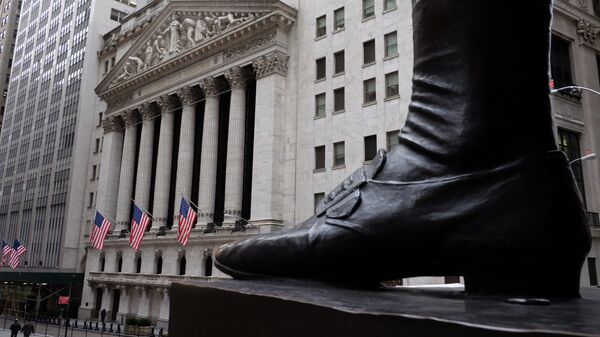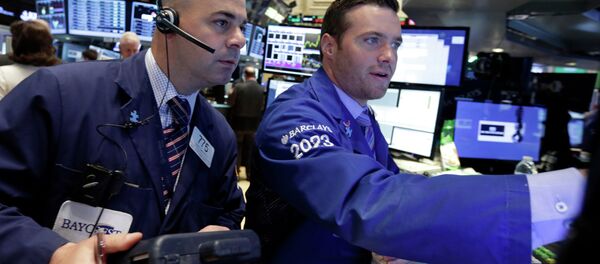As most US stocks ended last week little changed, even though the macroeconomic data was favorable, it is clear that policy sentiment has become the key driving force behind Wall Street.
Spillovers of major international events are also a factor of Wall Street’s movements, as evidenced by the impact of news from the fields of battle in the Greek standoff.
The S&P 500 Index ended last week flat, moving less than 1% for the seventh consecutive week. This is not a negative signal for investors nonetheless, as the pace of expansion in the US real economy is only picking up after a decline in Q1, while the North American stock markets expanded aggressively during the same period of time, far outpacing the non-financial gains.
Volatility is rising, as the US stocks posted their greatest three-day decline last week since March, ending the same week with the biggest monthly advance.
Macro data were solid, with retail sales gaining momentum along with consumer confidence. The preliminary consumer sentiment index for June, compiled by the University of Michigan, was even above the Bloomberg consensus average. The US Fed, data-dependent in determining its timing for the looming interest hike, is expected to deliver a clear message this week.
Just three months ago, the market was anticipating a hike in base interest no later than June, but the first quarter’s economic headwinds ruined those expectations. Now, the interest rise is forecast for September, followed by the next tightening move later this year.
Some more macro data is expected this week. US manufacturing, data due Monday, is forecast to have gained for the first time this year after nearly five months of contraction.
The housing market report, to arrive Tuesday, will likely show sustained improvement. The Fed policy meeting will start on Wednesday, surely considering the data reports.
“The economic data has been better than expected here. We view that obviously as a positive for the economy and the market overall,” Walter Todd of Greenwodd Capital said.
The Fed’s hawkish stance will trigger an initial sell-off in stocks, pushing the greenback higher against its major peers, while the regulator’s dovishness will spur equity gains, weighing on the dollar’s FX rate.
In the fixed income market, yield on the US government’s debt, namely the benchmark 10-year Treasury note, hit its highest since October amidst the monetary tightening expectations. That is an indication of growth in volatility, and markets can get more anxious as the rise in borrowing costs nears.
Another issue for the global stocks, including those traded on Wall Street, is the four-month standoff between the heavily-indebted Greece and its international creditors. Last week, German Chancellor Angela Merkel once again called the Leftist government in Athens to accept the framework agreement for financial assistance, implying austerity measures for Greece. The IMF negotiators had left talks earlier that week, stirring concern in stock markets worldwide.
Though a significant factor, the Greek risks are not equally important for Wall Street or the Fed’s decisions. However, the US market’s response to the overseas events might impact the Fed’s timing and appetite for the increase in domestic borrowing costs.




